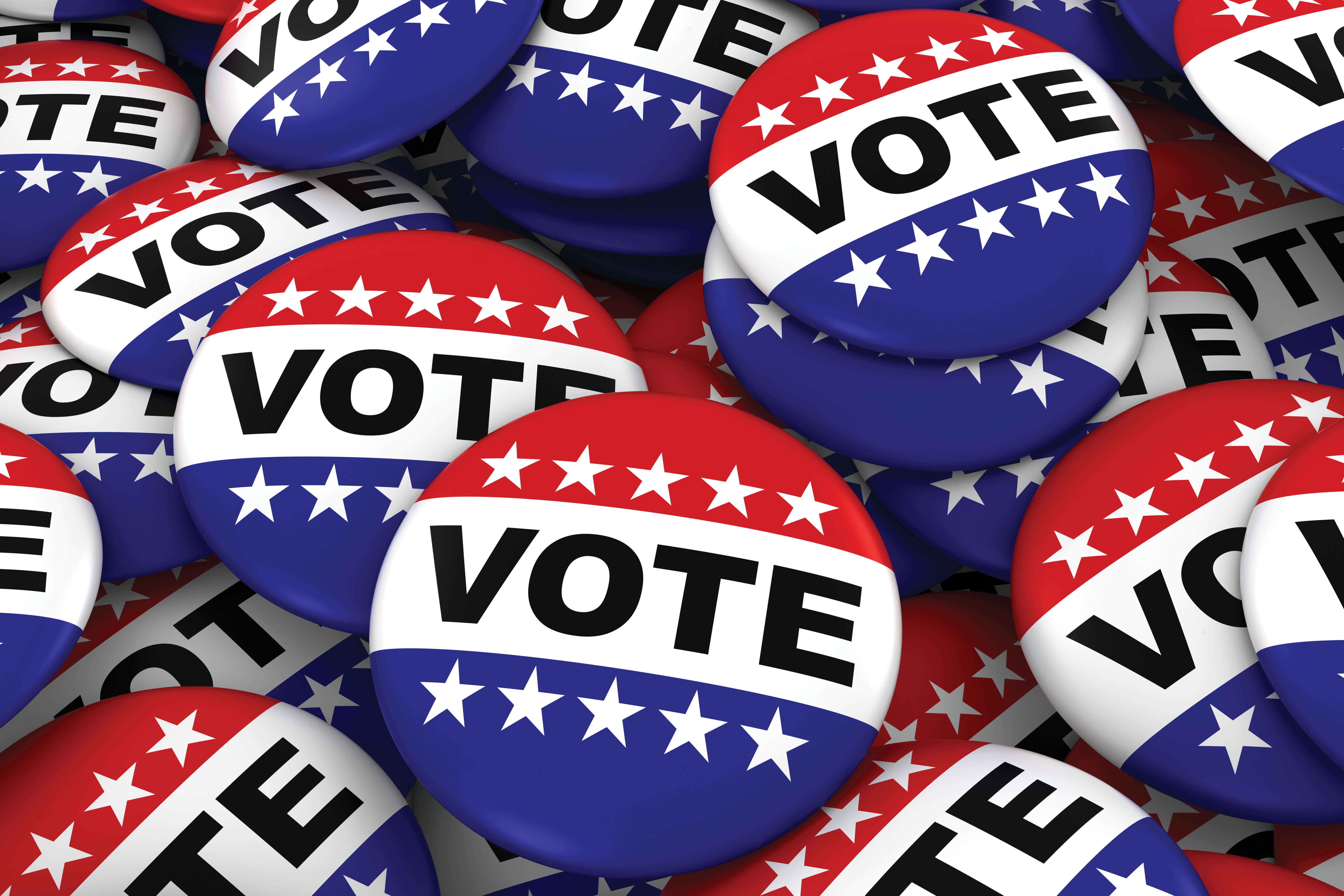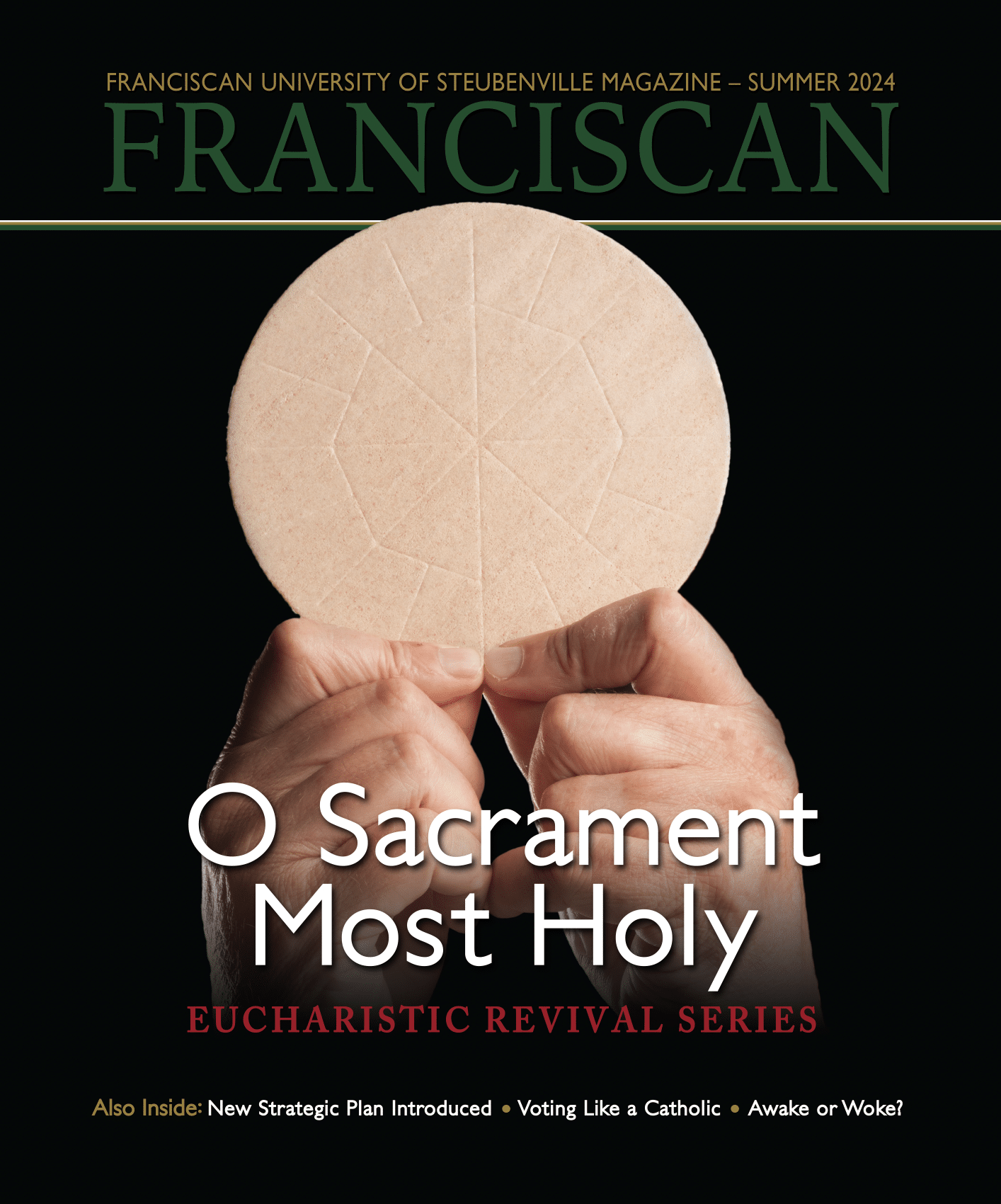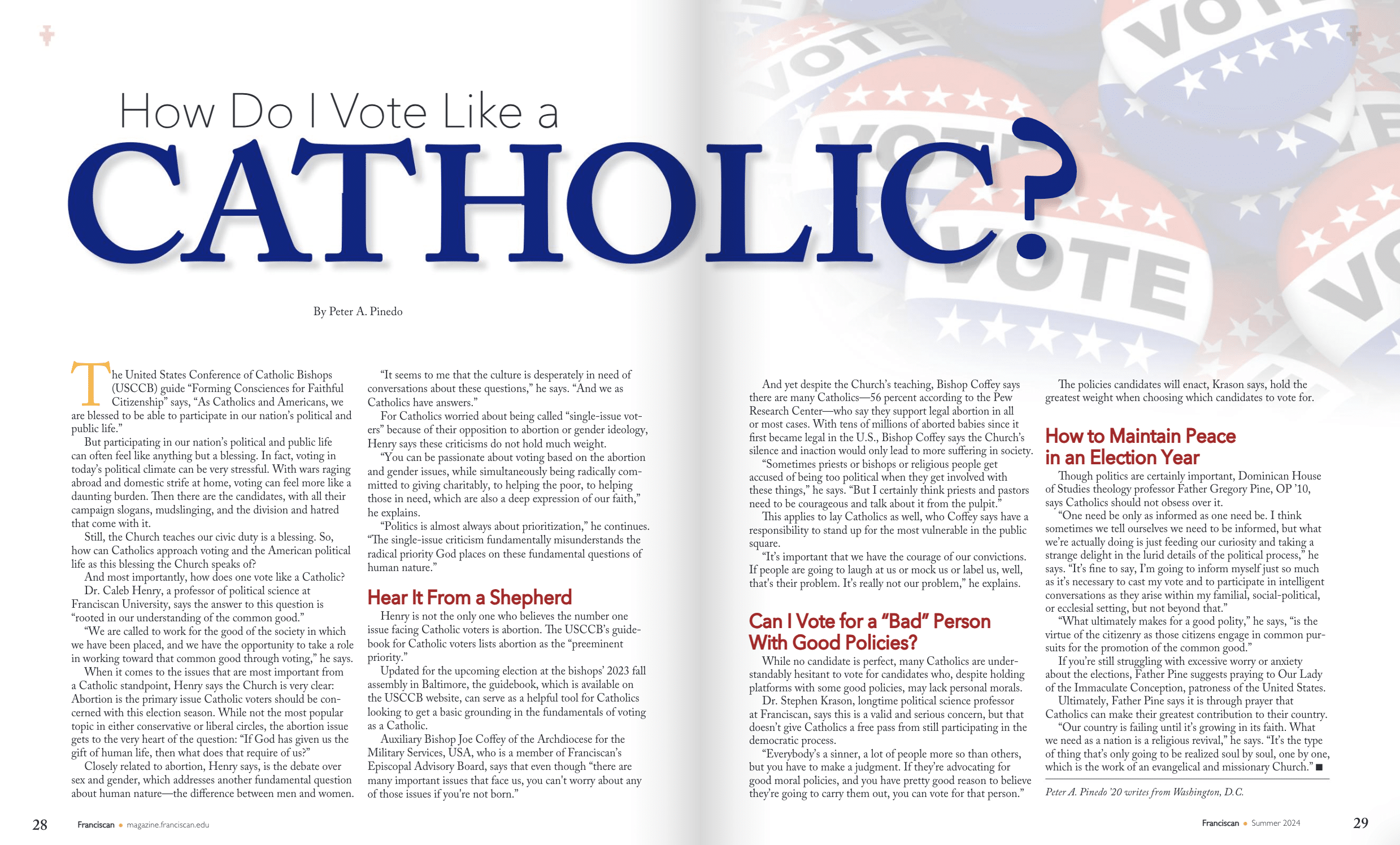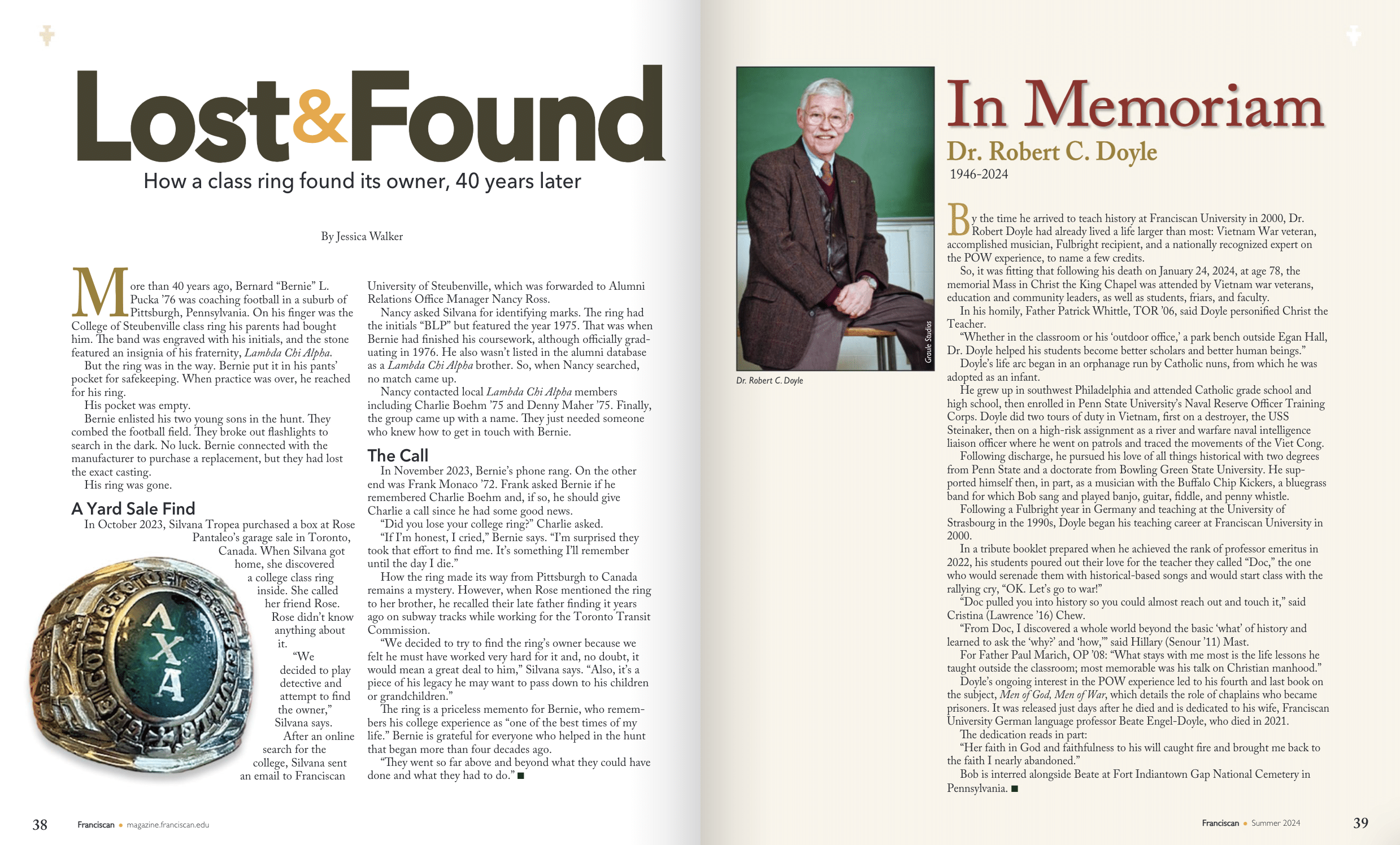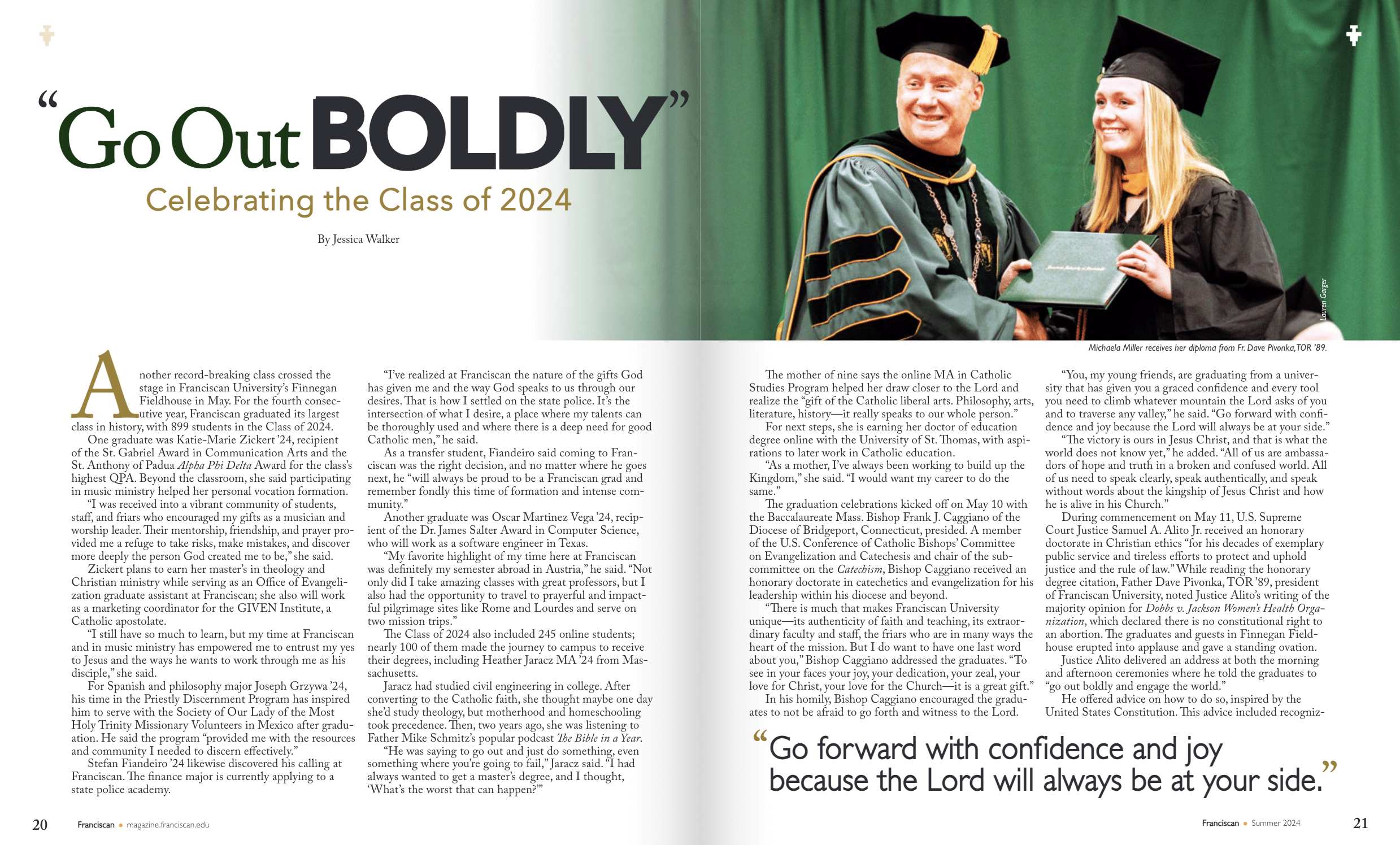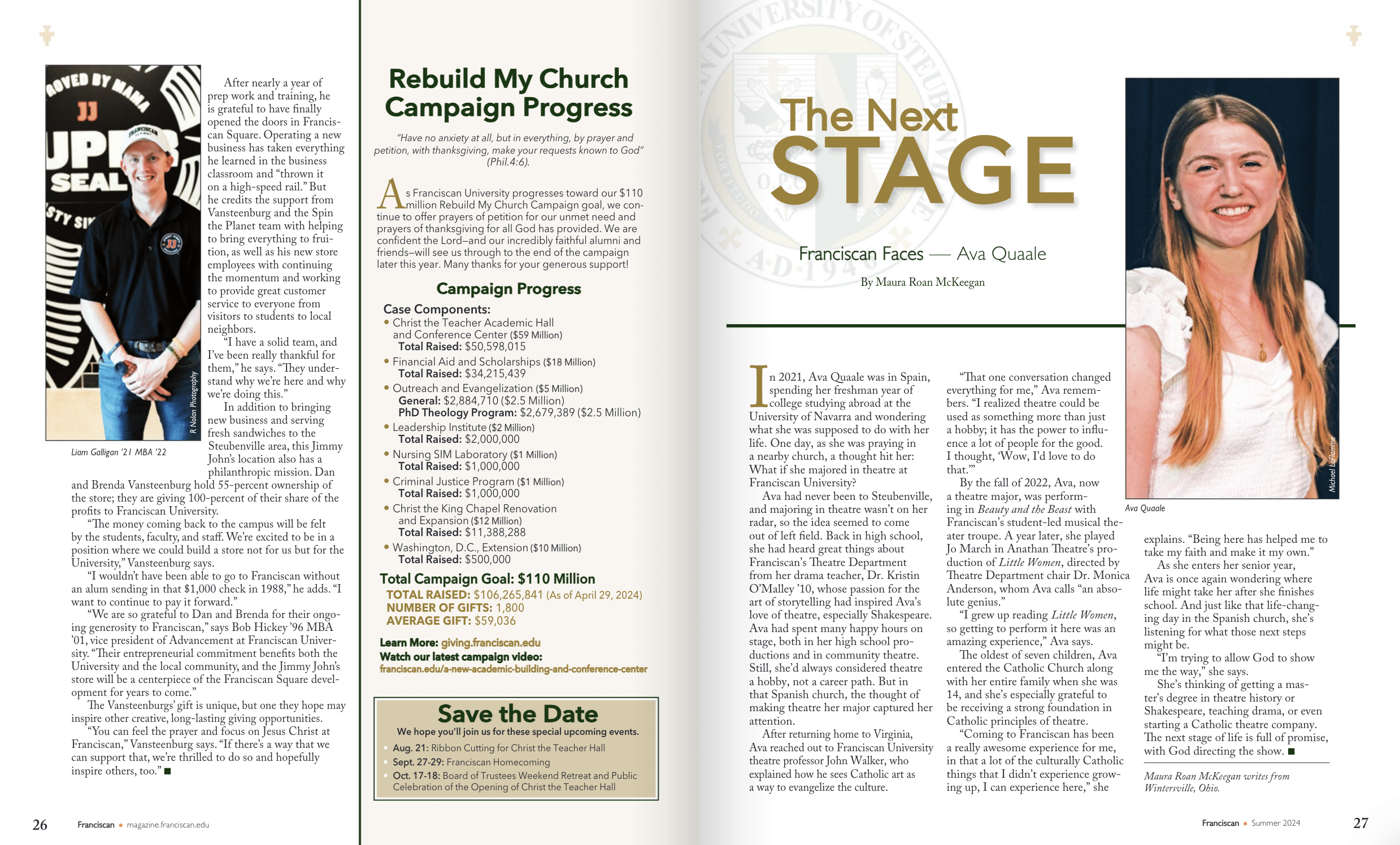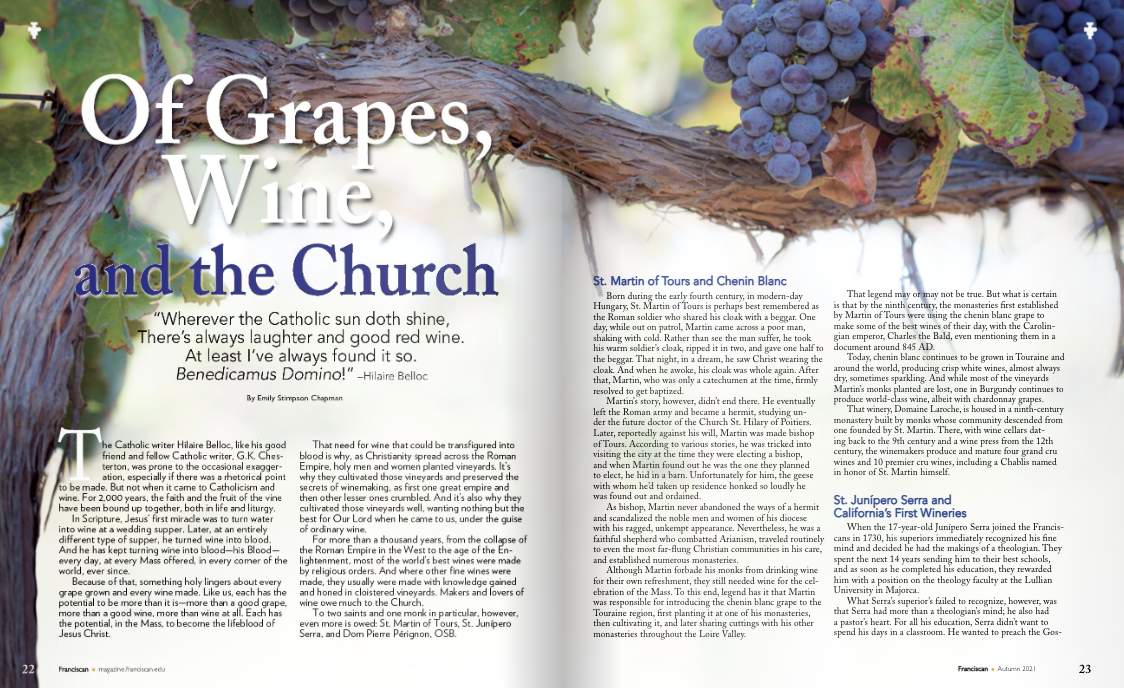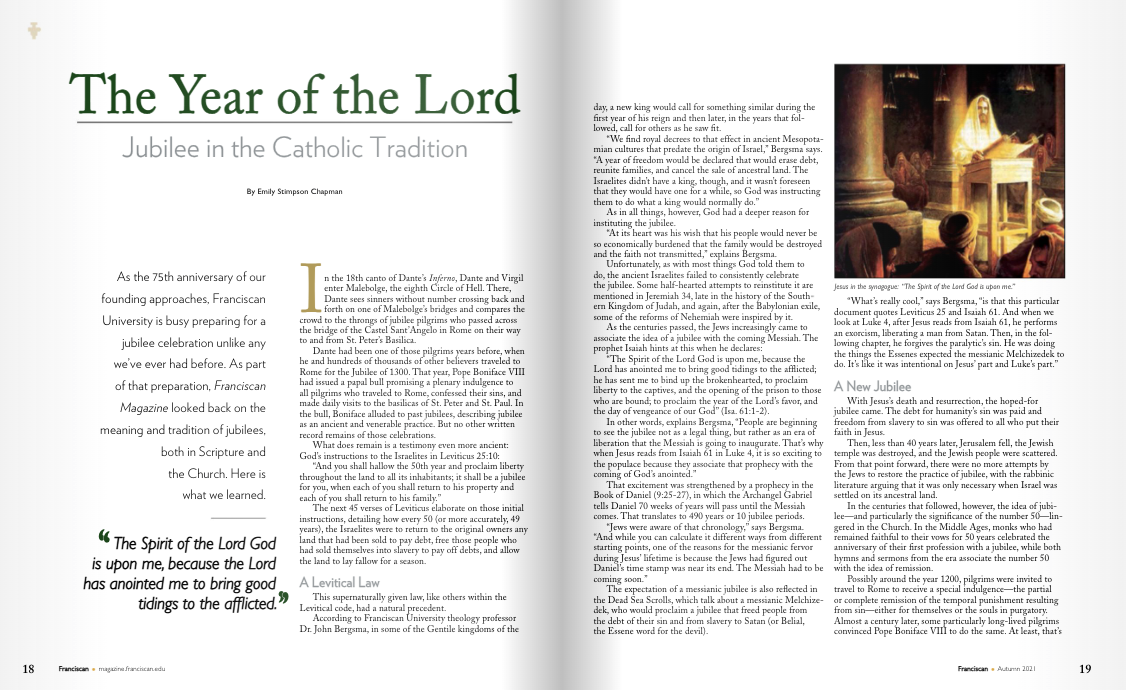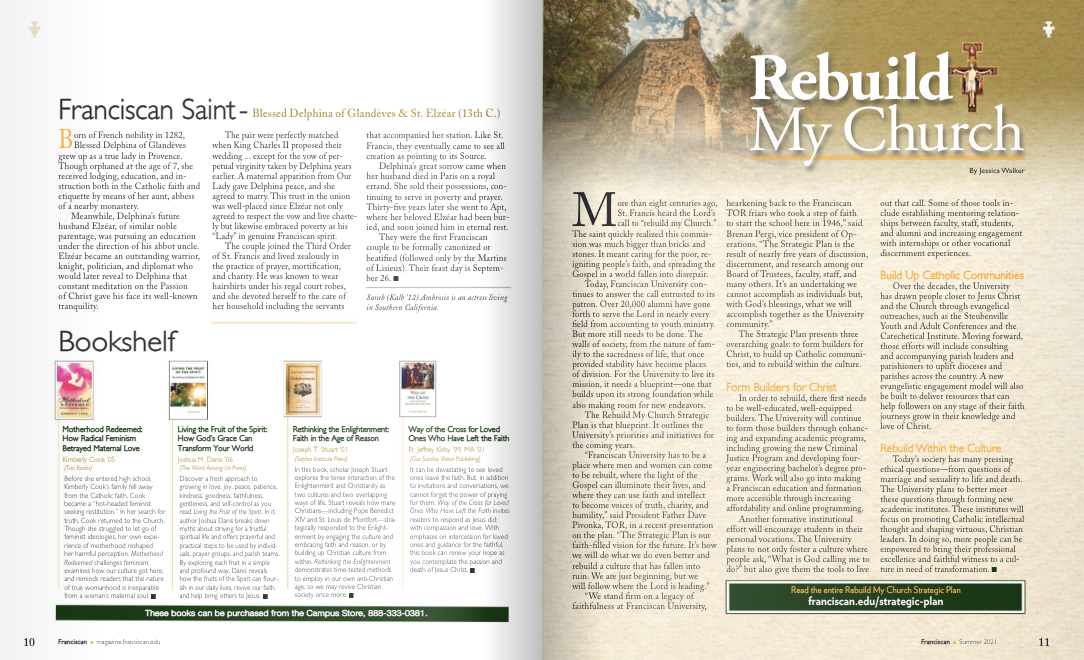The United States Conference of Catholic Bishops (USCCB) guide “Forming Consciences for Faithful Citizenship” says, “As Catholics and Americans, we are blessed to be able to participate in our nation’s political and public life.”
But participating in our nation’s political and public life can often feel like anything but a blessing. In fact, voting in today’s political climate can be very stressful. With wars raging abroad and domestic strife at home, voting can feel more like a daunting burden. Then there are the candidates, with all their campaign slogans, mudslinging, and the division and hatred that come with it.
Still, the Church teaches our civic duty is a blessing. So, how can Catholics approach voting and the American political life as this blessing the Church speaks of?
And most importantly, how does one vote like a Catholic?
Dr. Caleb Henry, a professor of political science at Franciscan University, says the answer to this question is “rooted in our understanding of the common good.”
“We are called to work for the good of the society in which we have been placed, and we have the opportunity to take a role in working toward that common good through voting,” he says.
When it comes to the issues that are most important from a Catholic standpoint, Henry says the Church is very clear: Abortion is the primary issue Catholic voters should be concerned with this election season. While not the most popular topic in either conservative or liberal circles, the abortion issue gets to the very heart of the question: “If God has given us the gift of human life, then what does that require of us?”
Closely related to abortion, Henry says, is the debate over sex and gender, which addresses another fundamental question about human nature—the difference between men and women.
“It seems to me that the culture is desperately in need of conversations about these questions,” he says. “And we as Catholics have answers.”
For Catholics worried about being called “single-issue voters” because of their opposition to abortion or gender ideology, Henry says these criticisms do not hold much weight.
“You can be passionate about voting based on the abortion and gender issues, while simultaneously being radically committed to giving charitably, to helping the poor, to helping those in need, which are also a deep expression of our faith,” he explains.
“Politics is almost always about prioritization,” he continues. “The single-issue criticism fundamentally misunderstands the radical priority God places on these fundamental questions of human nature.”
Hear It From a Shepherd
Henry is not the only one who believes the number one issue facing Catholic voters is abortion. The USCCB’s guidebook for Catholic voters lists abortion as the “preeminent priority.”
Updated for the upcoming election at the bishops’ 2023 fall assembly in Baltimore, the guidebook, which is available on the USCCB website, can serve as a helpful tool for Catholics looking to get a basic grounding in the fundamentals of voting as a Catholic.
Auxiliary Bishop Joe Coffey of the Archdiocese for the Military Services, USA, who is a member of Franciscan’s Episcopal Advisory Board, says that even though “there are many important issues that face us, you can’t worry about any of those issues if you’re not born.”
And yet despite the Church’s teaching, Bishop Coffey says there are many Catholics—56 percent according to the Pew Research Center—who say they support legal abortion in all or most cases. With tens of millions of aborted babies since it first became legal in the U.S., Bishop Coffey says the Church’s silence and inaction would only lead to more suffering in society.
“Sometimes priests or bishops or religious people get accused of being too political when they get involved with these things,” he says. “But I certainly think priests and pastors need to be courageous and talk about it from the pulpit.”
This applies to lay Catholics as well, who Coffey says have a responsibility to stand up for the most vulnerable in the public square.
“It’s important that we have the courage of our convictions. If people are going to laugh at us or mock us or label us, well, that’s their problem. It’s really not our problem,” he explains.
Can I Vote for a “Bad” Person With Good Policies?
While no candidate is perfect, many Catholics are understandably hesitant to vote for candidates who, despite holding platforms with some good policies, may lack personal morals.
Dr. Stephen Krason, longtime political science professor at Franciscan, says this is a valid and serious concern, but that doesn’t give Catholics a free pass from still participating in the democratic process.
“Everybody’s a sinner, a lot of people more so than others, but you have to make a judgment. If they’re advocating for good moral policies, and you have pretty good reason to believe they’re going to carry them out, you can vote for that person.”
The policies candidates will enact, Krason says, hold the greatest weight when choosing which candidates to vote for.
How to Maintain Peace in an Election Year
Though politics are certainly important, Dominican House of Studies theology professor Father Gregory Pine, OP ’10, says Catholics should not obsess over it.
“One need be only as informed as one need be. I think sometimes we tell ourselves we need to be informed, but what we’re actually doing is just feeding our curiosity and taking a strange delight in the lurid details of the political process,” he says. “It’s fine to say, I’m going to inform myself just so much as it’s necessary to cast my vote and to participate in intelligent conversations as they arise within my familial, social-political, or ecclesial setting, but not beyond that.”
“What ultimately makes for a good polity,” he says, “is the virtue of the citizenry as those citizens engage in common pursuits for the promotion of the common good.”
If you’re still struggling with excessive worry or anxiety about the elections, Father Pine suggests praying to Our Lady of the Immaculate Conception, patroness of the United States.
Ultimately, Father Pine says it is through prayer that Catholics can make their greatest contribution to their country.
“Our country is failing until it’s growing in its faith. What we need as a nation is a religious revival,” he says. “It’s the type of thing that’s only going to be realized soul by soul, one by one, which is the work of an evangelical and missionary Church.”
Peter A. Pinedo ’20 writes from Washington, D.C.



